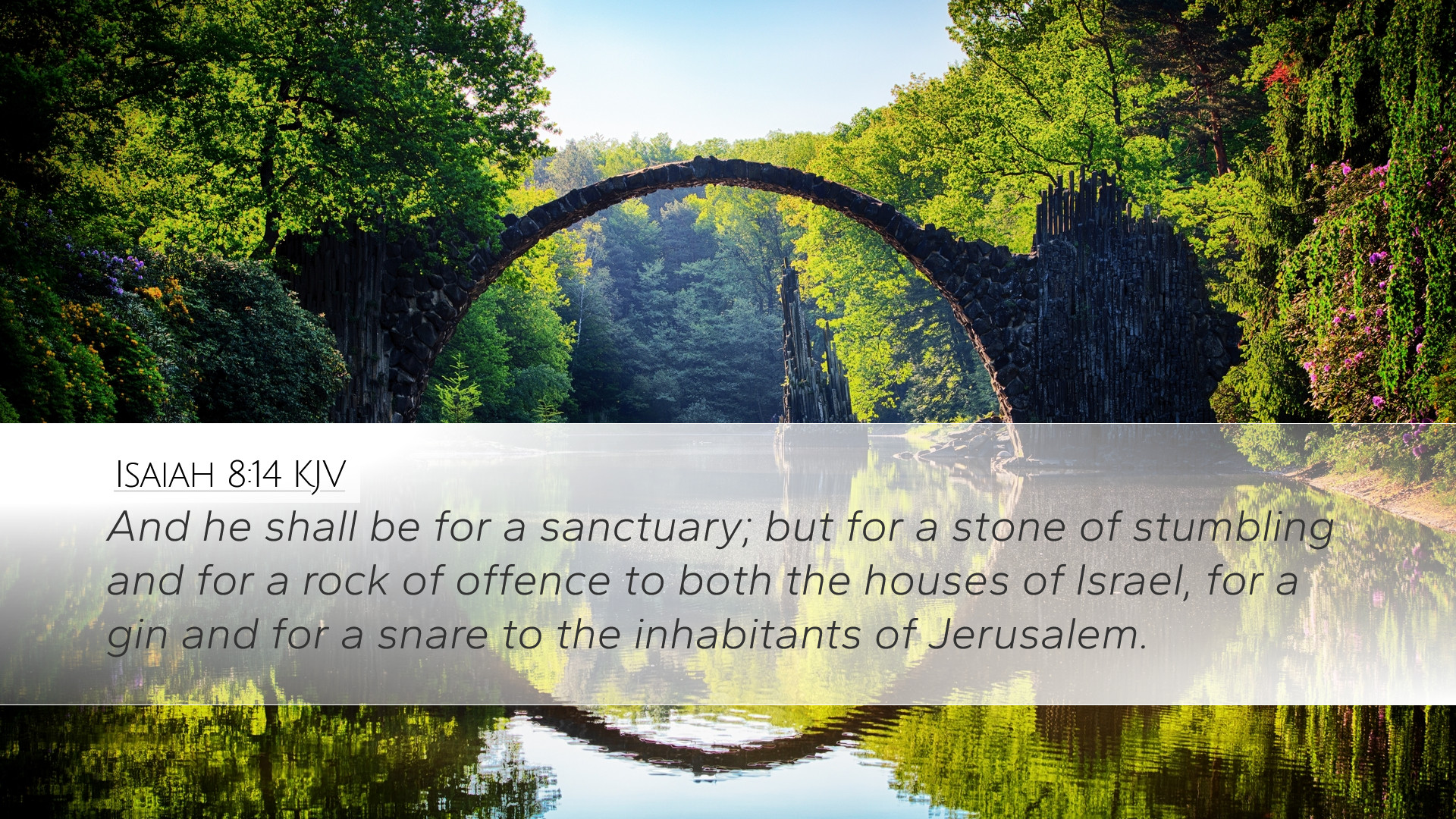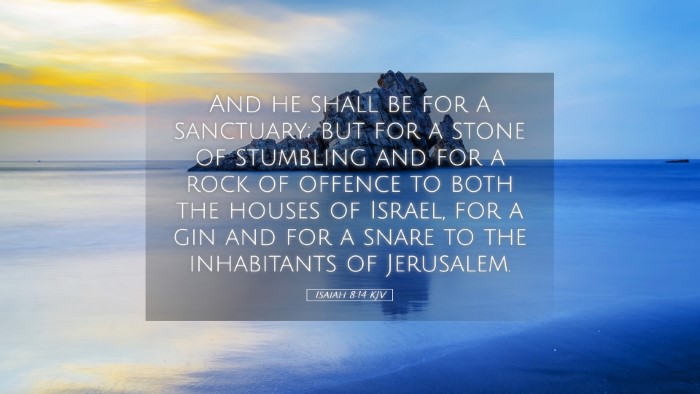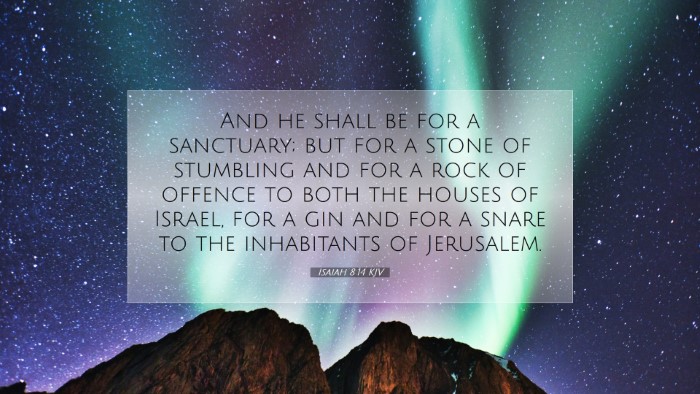Commentary on Isaiah 8:14
Isaiah 8:14 states, "And he shall be for a sanctuary; but for a stone of stumbling and for a rock of offense to both the houses of Israel, for a gin and for a snare to the inhabitants of Jerusalem." This verse encapsulates profound theological themes that resonate through both the Old and New Testaments.
Contextual Background
Isaiah prophesied during a tumultuous period for Israel, facing threats from Assyria and internal strife. This verse emerges from a larger discourse where God promises to be a refuge for those who trust in Him, while simultaneously revealing the impending judgment that will come upon those who oppose His will.
The Nature of God as a Sanctuary
In the first part of the verse, the declaration that God shall be a sanctuary emphasizes His role as a safe haven. Matthew Henry notes that this sanctuary is not only a place of worship but represents God Himself as the ultimate source of protection and peace. This reflects the nature of God’s covenant with His people, underscoring His willingness to be present amid their crises.
Insights from Commentators
- Matthew Henry: He elaborates that God being a sanctuary indicates His holiness and the secure state of those who believe. The sanctuary signifies His presence and the assurance that believers can take refuge in Him.
- Albert Barnes: Barnes elucidates that the term "sanctuary" conveys the idea of strength and safety, suggesting that those aligned with God's commandments will find solace in Him.
- Adam Clarke: Clarke highlights that this sanctuary provides peace, especially to the righteous, shielding them from the perils of a sinful world.
The Dual Nature as a Stone of Stumbling
Conversely, the latter part of the verse introduces the paradox of God as a "stone of stumbling" and "a rock of offense." This dual nature signifies a critical aspect of Biblical theology. Those who reject or oppose God will encounter Him not as a refuge, but as a source of offense and stumbling.
Theological Ramifications
- Matthew Henry: He notes that the adverse reaction of many, particularly among the houses of Israel, reflects their refusal to recognize God's authority and providence. For them, faith's cornerstone becomes a stumbling block.
- Albert Barnes: Barnes comments on the fulfillment of this motif in the New Testament, where Jesus Christ is depicted as the cornerstone that the builders rejected, symbolizing a continual pattern of resistance to divine will.
- Adam Clarke: Clarke elaborates that the metaphor of a “rock of offense” serves to illustrate the judgment that awaits those who persist in disobedience, struggling against the very truth intended to set them free.
Application for Pastors and Theologians
This passage challenges believers to recognize their stance towards God. Pastors can use this verse to illustrate the importance of faithfulness in God’s call, emphasizing that while God remains a sanctuary for those who trust Him, He also represents judgment for those who reject His word. The dual nature of God's character must encourage a proper response in both worship and obedience.
Reflection Points
- Faith Assurance: Reflect on how God is a sanctuary in your life and community.
- Reconciliation Call: Consider those who might be stumbling over their faith and seek to guide them back to God.
- Importance of Proclamation: Understand the weight of proclaiming God's word accurately, recognizing both the grace and the judgment it holds.
Conclusion
Isaiah 8:14 serves not only as a prophetic warning but as a profound reminder of God's nature as both refuge and judge. For pastors, students, and scholars, engaging with this text will reveal deeper insights into the character of God and the human condition. It empowers leaders to call for repentance while affirmatively presenting God as a sanctuary for those who seek Him genuinely.


